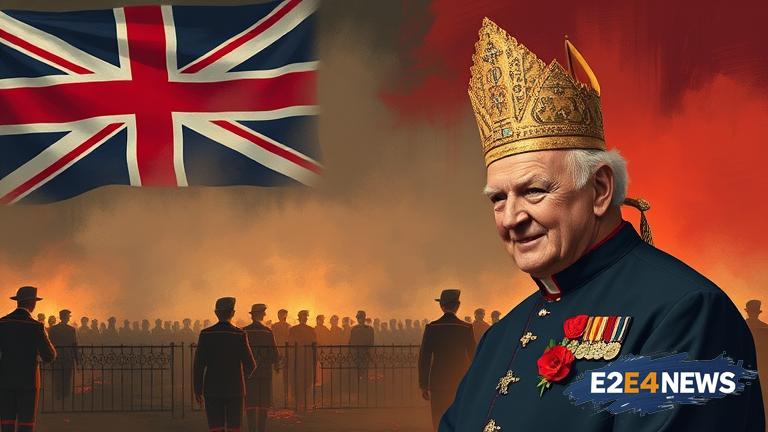A contentious debate has erupted in Australia over a proposed revision to the traditional Remembrance Day service, spearheaded by Bishop Kennedy. The plan, which aims to make the service more inclusive, has been met with fierce opposition from veterans and community members who feel that the changes would undermine the significance and solemnity of the occasion. Remembrance Day, observed on November 11th, is a sacred day for Australians to pay tribute to the nation’s fallen soldiers and to reflect on the sacrifices made during times of war. The traditional service, which includes the recitation of the Ode of Remembrance and the observance of a minute’s silence, is a deeply ingrained and revered ritual in Australian culture. However, Bishop Kennedy’s proposal seeks to introduce new elements to the service, including a broader focus on peace and reconciliation, which some argue would dilute the true meaning and purpose of the day. Veterans’ groups and community leaders have expressed their strong disapproval of the plan, citing concerns that it would disrespect the memories of those who have served and sacrificed for their country. The backlash has been intense, with many calling for Bishop Kennedy to reconsider his proposal and to respect the traditional format of the service. The debate has also sparked a wider discussion about the role of religion in public life and the importance of preserving cultural traditions. As the controversy continues to unfold, it remains to be seen whether Bishop Kennedy’s proposal will be implemented or whether the traditional service will be retained. The Australian government has thus far remained silent on the issue, although it is likely that they will be forced to intervene in the coming days. The Remembrance Day service is an important event in the Australian calendar, and any changes to its format are likely to be closely scrutinized. The controversy has also highlighted the deep-seated emotions and passions that surround issues of national identity and cultural heritage. For many Australians, the traditional Remembrance Day service is an essential part of their national identity and a vital connection to their history and heritage. The proposal to modify the service has therefore been seen as a threat to these values and traditions. As the debate rages on, it is clear that the issue will not be resolved easily, and that a compromise will need to be found that balances the need for inclusivity and respect for tradition. The Australian public will be watching closely as the situation develops, and it is likely that the controversy will continue to make headlines in the coming days. The importance of preserving the traditional Remembrance Day service has been emphasized by many, who argue that it is essential to honor the memories of those who have served and sacrificed for their country. The proposal to modify the service has been seen as a betrayal of these values, and a disservice to the nation’s fallen soldiers. The controversy has also raised questions about the role of the church in public life, and the extent to which religious leaders should seek to influence cultural traditions. As the situation continues to unfold, it is clear that the debate will be intense and passionate, with deeply held convictions on both sides. The outcome of the controversy is far from certain, and it remains to be seen whether Bishop Kennedy’s proposal will be implemented or whether the traditional service will be retained. One thing is certain, however: the debate has highlighted the importance of preserving cultural traditions and respecting the memories of those who have served and sacrificed for their country.
